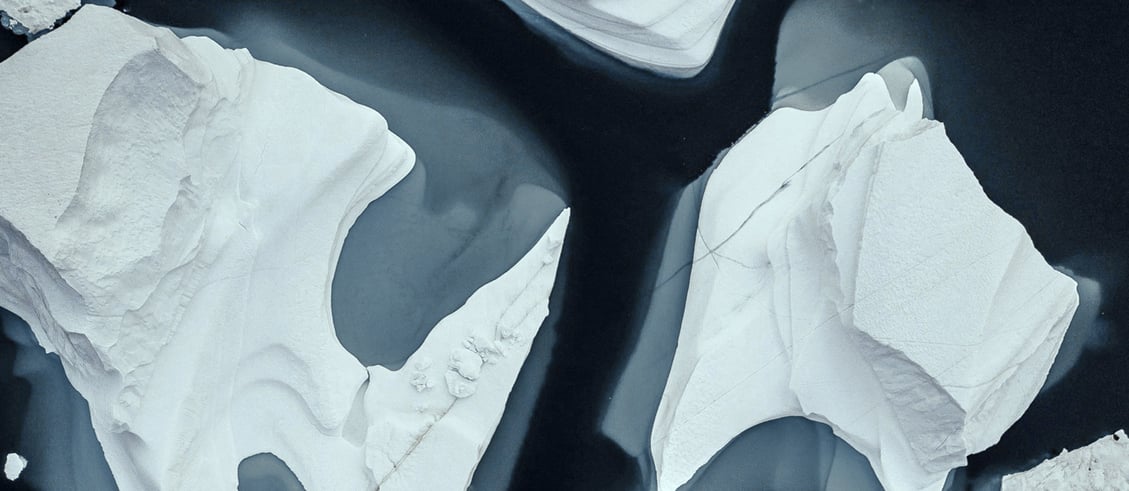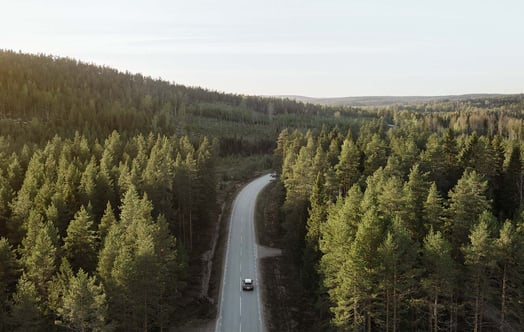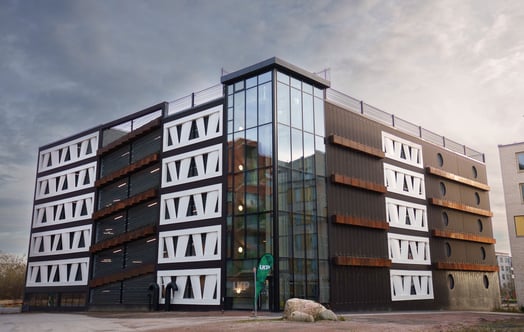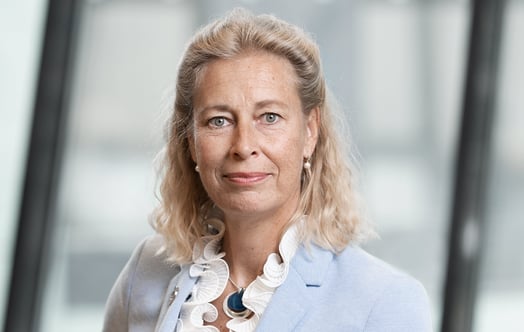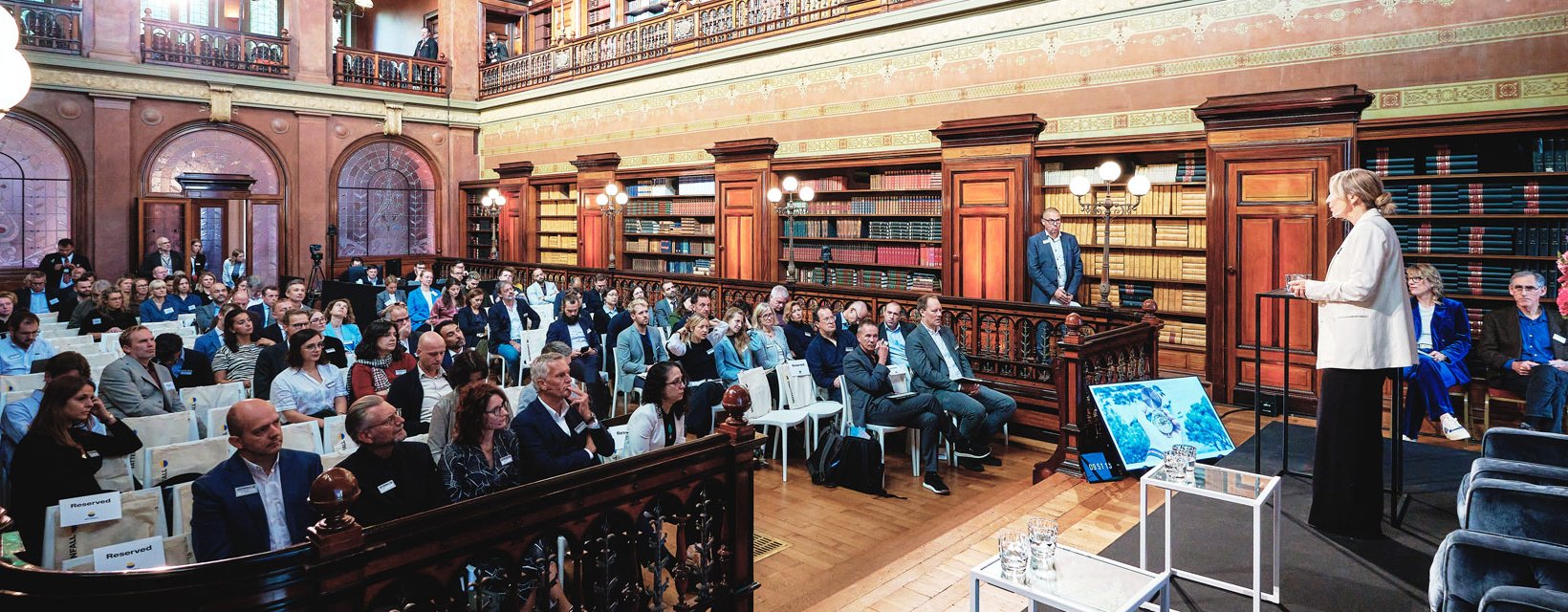
Shifting the climate narrative
On 24 September 2024 we hosted an event titled "Can climate communication overcome the bad news problem?" at the Bibliothèque Solvay in Brussels and online. Participants heard from leading figures from journalism, politics, business, academia and NGOs who shared their insights on issues such as climate reporting, misinformation and public apathy.
The discussions focused on shifting climate change narratives from despair to hope, encouraging action. Key takeaways included promoting responsibility, focusing on solutions, and addressing the seriousness of climate change without instilling fear.
These are Mark Lee Hunter’s reflections on the event.
When we began to think about this event, we understood that we were doing something different and risky. We were asking people from different sectors of communications, with very different values and roles, to share a stage and a common theme. If that theme – the necessity of finding new ways to alert and engage the public – had not been connected to the climate crisis, I think we would have found it impossible. To take one example, the event would have been meaningless without journalists and activists, and for both groups the idea of participating in an event sponsored by an energy company, even one owned by the Swedish state and committed to being fossil-free in the short term, might be out of the question. In fact, not everyone accepted our invitations, and one or two who did changed their minds at the last minute.
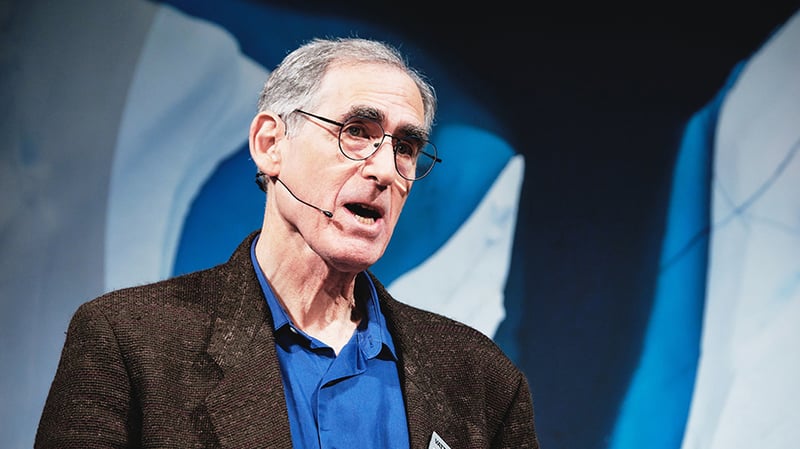
Dr. Mark Lee Hunter.
To me, that underlines the success of the event. By “‘success” I don’t mean the fact that over one million people viewed us online, though a few days beforehand we were thinking in terms of a few thousands. I mean that leaders in their respective fields of communication – hard news, investigative, constructive and solutions journalism, NGOs, scientists, media development specialists, even marketers – not only spoke, but also listened to each other, and found common ground.
Early on in our research for the event, we became aware of an epochal shift taking place in the journalism community. Alexandra Borchardt had documented the adoption of solutions journalism as the way forward for public broadcasters caught between the need to inform their viewers about the urgency of the climate crisis and the requirement to abjure activism.
To me, that’s as significant as the rise of investigative journalism worldwide following Watergate (which I followed as a student, right into a career as a journalist). It’s now a given that we can’t just expose the facts. We are also responsible for enabling a useful response to the facts. That’s what people like Ulrik Haagerup of the Constructive Institute have spent decades fighting for, and the happiest moment for me at the conference was when I told him, “You’ve won that argument.”
There was a “really? "moment when neuroscientist Kris de Meyer told us that action leads to knowledge, more than the other way around. Communicators of every kind, as Alexandra Borchardt has remarked, like to think that by pouring knowledge into the public domain, we inspire action. That certainly happens sometimes, as Emilia Diaz-Struck of the Global Investigative Journalism Network demonstrated in a moving declaration about the global impact of the Panama Papers. The point is that it’s not an either-or proposition. We have more than one path to inspire action – through stories of people who undertake it and are changed (which happens to be the classic theme of adventure stories), or by revealing what has been kept secret and must be stopped. Tom Brookes of the Meliore Foundation suggested a frame, backed by solid data, that arches over both approaches: saving the lives of future generations.
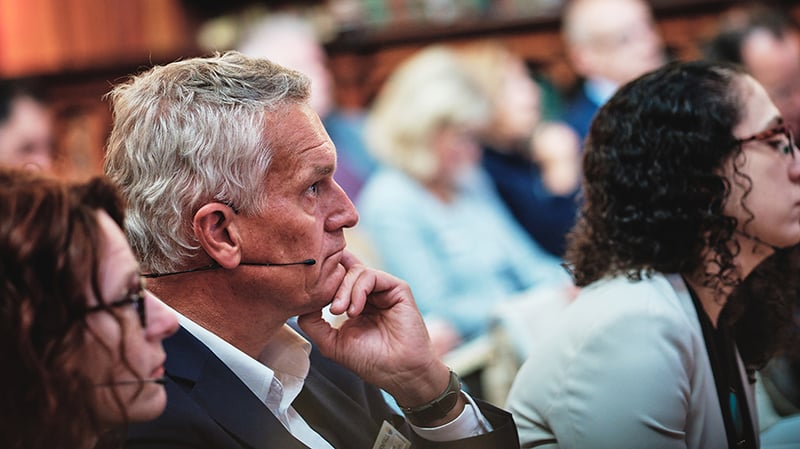
Panellists and members of the audience at the climate communication event.
The depth of the global mobilisation to inform and inspire action on the climate became increasingly apparent. So did a series of victories – over indifference, avoidance and lack of capacity. Mitali Mukherjee of the Reuters Institute brought striking nuance to their recent studies on news avoidance: Yes, a significant minority of the public avoids climate news, and much bigger shares of the public declines to follow sports or celebrities. The message is that we’re doing better than we might have thought.
More talent is entering the field – people like Anny Tubbs, who left a corporate career to make documentaries about the climate, or Boris van Westering, who brought investigative artwork into COP28 like a Trojan horse. Lagipoiva Cherelle Jackson of the Solutions Journalism Network pointed to a relatively untapped resource – local knowledge, from reporters or elders. Ivan Couronne of the Agence France Presse’s “Future of the Planet” unit told us how to bring reporters from competing beats together on climate coverage. Syed Nazakat’s “Shakti” initiative in India showed how to construct a wide network of media to fight political disinformation; it could work for the climate, he said. Johan Gustafsson, an advertising executive who used “The World’s Ugliest Lawn” to make people think harder about water use – as Ivan Couronne said, “People don’t avoid climate stories, they avoid boring climate stories” – thinks that the future for his industry is an alliance of progressive firms with progressive creatives. There are still untouched reserves in this fight, and a big piece of them will come from collaboration across specialities and sectors.
We knew from our pre-conference conversations with speakers and other sources that a great many initiatives can be considered experiments. That applies to the massive foundation support for training climate reporters. Tom Law of the Global Forum for Media Development warned that support for climate coverage can’t come at the expense of other issues that audiences care about. Syli, a UK-based NGO that builds enterprise skills and other capacity with independent media, is compiling data on its projects that will be open-sourced, promised one of its executives, Shereen Daver.
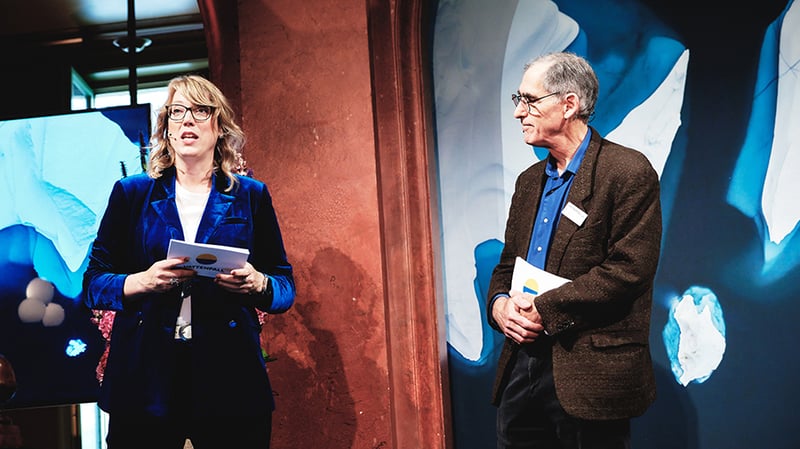
Anouk IJfs and Mark Lee Hunter.
When Anouk IJfs and I were planning this event, we discovered that even the committed, very smart people we were talking with could get depressed about the climate. Well, me too. But I don’t feel that way today, even with record rains pouring down on me from the sky over France. I feel inspired, because the people I met on this project are making something happen and won’t give up.
Mark Lee Hunter
Dr. Mark Lee Hunter, founding member of The Global Investigative Journalism Network, the principal author of Story-Based Inquiry: A Manual for Investigative Journalists (UNESCO 2009) and the recipient of many awards for his reporting, co-moderated the event in Brussels and discusses his involvement in this column.

